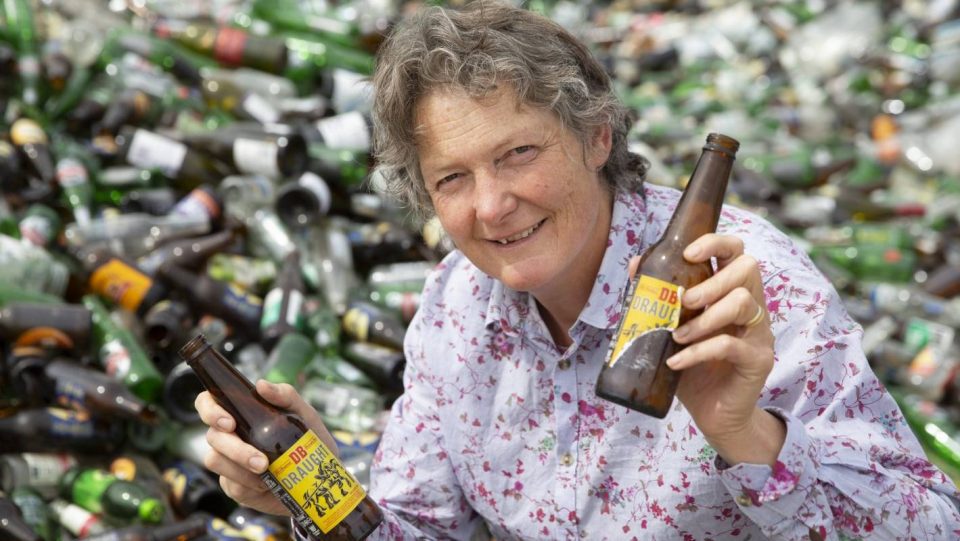BEJON HASWELL/ STUFF
Timaru District Council waste minimisation manager Ruth Clarke with some glass bottles at the Redruth Resource Recovery Park. The council is looking at smarter ways to recycle its material.
Timaru District Council is looking at new ways to utilise its glass resources in its upcoming waste management contract, after recently crushing more than 9000 tonnes for aggregate material.
The glass, equivalent to about nine years’ worth of yellow bin deposits, has been crushed and used as aggregate for contouring and capping the old landfill area at Redruth.
The council’s waste minimisation manager Ruth Clarke said although this was a way of putting the resource to good use, the council were looking at other ways of maximising the value of the glass it collects.
BEJON HASWELL/ STUFF
The Timaru District Council will soon put a major waste management contract out to tender.
“For the past few years we’ve had to stockpile glass bottles on site, due to logistical difficulties, limited market opportunities, and limitations in the current recycling system.
“The capping of an old area of landfill has provided an opportunity to use the glass effectively as aggregate, replacing material that would otherwise have had to be quarried and purchased.”
BEJON HASWELL/ STUFF
More than 9000 tonnes of glass bottles were recently crushed and turned into aggregate.
Clarke said the council was due to go through the process of putting out a new 15-year waste management contract out for tender. The contract will be approved by June this year in time for the winner to begin in June 2021.
“There’s going to be a real focus on sustainability in the tender process. It’s very much the watchword now.”
Clarke added there could be an opportunity for looking at alternate uses for the recyclable glass through the tender.
“What we want to see is less down-cycling, which is turning material into inferior products, and more recycling or up-cycling, which is turning the material into similar or superior products.
“It’s likely that options for other products will increase in the future – whether they are handled by council/contractor will be agreed on a case by case basis.
“If handled properly in production, use and disposal, glass can be made in a closed-loop cycle, meaning the end-of-life material from glass can be used to remake the exact same product – over and over again.”
Clarke said under the proposed new tender, kerbside glass recycling will only be glass bottles and glass jars.
“Using recycled glass in the manufacturing process also requires fewer raw materials and less energy, both of which result in lower carbon emissions.”
Clarke said in the past, there had not been the market for turning used glass bottles back into bottles, but in recent years, the market, and the infrastructure for it, had increased markedly.
“The primary focus is to grow what we call the ‘circular economy’.”


